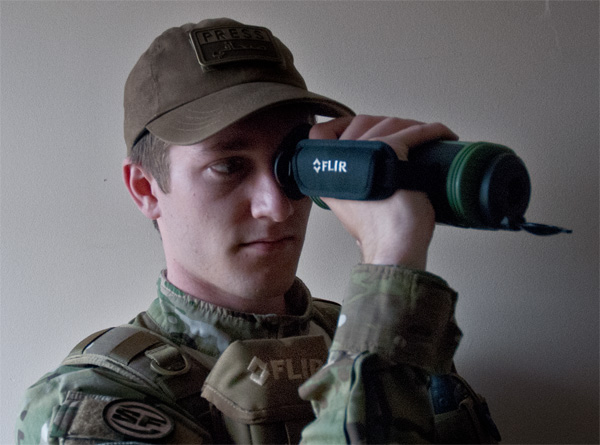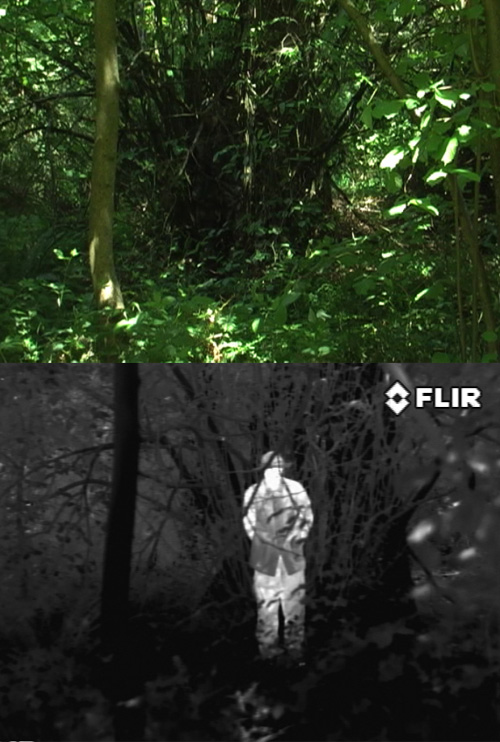
Yes, anyone can own and use FLIR scout thermal cameras. However, you should already know that taking a shot at an animal more than a half hour before sunrise or a half hour after sunset is illegal in most states, and you will be charged with poaching if hunting at night. Check your individual state laws when it comes to using a thermal device during hunting season.
Yes. 100%. It is legally exported from the US and can be taken back and forth without a problem. FLIR scouts can also be exported to other countries without a problem.
Yes. Unlike traditional image intensifier (I2) night vision, FLIR thermals see the same regardless of light. So even when there is zero light to amplify, or if your out in the bright light of day, the image will read heat all the same.
Many other types of night vision will broadcast IR light that is invisible to the human eye, but illuminates the environment for the device. Known as "active night vision" the downside of these units is that some animals, and any person using similar night vision can easily see your IR light. Thermal units are passive technology, they do not emit any kind of signature. Some states have laws against hunting with an artificial light, which includes IR illuminators. Because FLIR units do not emit any sort of light, they do not fall under these restrictions.
Not most walls. Because the unit detects heat, there has to be a signature visible to the device. Most building's are insulated, but something like a shed, if a person was pressed against it you could definitely see the spot where their heat passed through the wall.
The microbolometer inside the unit can detect any hot spots in an environment. That means it can see through light brush and foliage, but more importantly, it can defeat any camouflage. If a deer is standing still, and 90% of it is blocked by vegetation, it will be extremely difficult to pick out with your eyes. But that remaining 10% that is exposed will show up white hot on the device. This means you can pick out signatures that you would otherwise look past, and then investigate further with binoculars.
Not really. See our upcoming blog post for more details on people who have tried this with varying success.
Yes, all FLIR units are IP 67 rated, which means they can be submerged while running and are drop tested to 2 meters.
FLIR has a 2 year warranty that covers all standard use issues. If the screen is damaged, that can be fixed, but we advise protecting the lens just like you would binoculars or a rifle scope.

